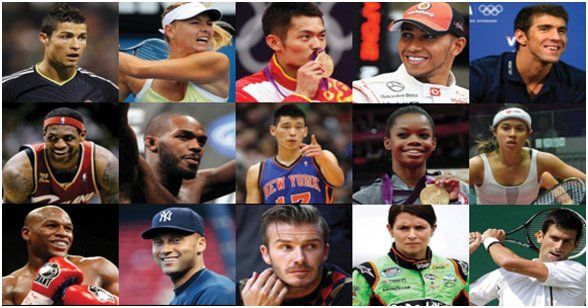
Elite Sport Performance
Research in the field of elite sport performance calls for all studies related to the different strategies undertaken by the main actors of a local and/or national sport movement aiming at achieving success in professional and/or international sport. Those actors are:
- At a macro-level, the government, ministry of youth and sports, ministry of education, National Olympic Committee or any related national governing body involved in setting up a national elite sport policy.
- At a meso-level, the national federations, local authorities, clubs, schools and universities.
- At a micro-level, coaches, medical staff and athletes.
Because of the involvement of these different actors, the study of elite sport performance encompasses, assembles and coordinates several sport sciences sub-academic fields:
- Sport history, sport sociology, sport policy and politics will help us understand the macro-level policies.
- Sport economy and sport management will help us understand the strategies undertaken at a meso-level
- At a micro-level, sport psychology, sport coaching and sports physiology will study the concepts related to the performance of the final appliers of the elite sport policy: the coaches and the athletes.
Any person willing to undertake research in this matter can contact Dr.Nadim Nassif (nnassif@ndu.edu.lb), in charge of the elite sport performance thematic in the International Society of Sport Sciences in the Arab World.
Group members:
- Nadim Nassif (nnassif@ndu.edu.lb), Academic Advisor of the Physical Education and Sports Major in Notre Dame University – Louaize, Lebanon
- Professor Wladimir Andreff (andreff@club-internet.fr), Emeritus Professor at the University Pars 1 Pantheon Sorbonne, President of the Scientific Council of the Observatory of Sports Economy, French Ministry of Sports.
Known Publications:
A.D.Novikov, A.M. Maximenko, ‘The influence of Selected Socio-Economic Factors on the Level of Sports Achievements in the Various Countries (using as an Example the 18th Olympic Games in Tokyo)’ International Review for the Sociology of Sport, vol.7, no.1 (1972), 27-44
B.Houlihan, J. Zeng. 2014. ‘Small States: Sport and Politics at the Margin’ International for Sport Policy and Politics (ahead-of-print) (2014), 1-16
Bian Xun, ‘Predicting Olympic Medal Counts: The Effects of Economic Development on Olympic Performance’ The Park Place Economist 13 (2005), 37-44
B.Andrew, M.R. Busse. ‘Who wins the Olympic Games: Economic resources and Medal Totals’ Review of Economics and Statistics 86 (1) (2004), 413-417.
Danyel Reiche, Success and Failure of Countries at the Olympic Games (Routledge Research in Sport, Culture and Society, 2016)
E.Emrich, M.Klein, W.Pitsch W.Donald, ‘On the Determinants of Sporting Success: A Note on the Olympic Games’, Economics Bulletin 32 (3): 1890-1901 (2012)
F.A.G Den Butter, C.M. Van Der Tak, ‘Olympic Medals as an Indicator of Social Welfare’. Social Indicators Research, 35 (1) (1995), 27-37
D.K.N. Johnson, A.Ali, ‘Coming to Play Or Coming to Win: Participation and Success at the Olympic Games’, Wellesley College Dept. of Economics Working Paper (2000-10), (2000).
I,Moosa, L.Smith. ‘Economic Development Indicators as Determinants of Medal Winning at the Sydney Olympics: An Extreme Bounds Analysis’. Australian Economic Papers 43 (3) (2004), 288-301
- Kuper, E. Sterken, ‘Olympic participation and performance since 1896’, University of Gronigen, Research Institute SOM (Systems, Organizations and Management), (2003).
J.Grix, and F.Carmichael, ‘Why do governments invest in elite sport? A polemic’, International Journal of Sport Policy and Politics, 4:1 (2012), pages 73-90.
- Pekka, P. Makela. ‘Olympic Success: A Sum of Non-Material and Material Factors’ International Review for the Sociology of Sport vol.13, no.2 (1978), 5-22
- Hon-Kwong, W. Suen. ‘Men, Money and Medals: An Econometric Analysis of the Olympic Games’ Pacific Economic Review 13 (1) (2008) 1-16
M.Green, B.Oakley, ‘Elite sport developing systems and playing to win: Uniformity and diversity in international approaches’, Leisure Studies, 20:4 (2001), 247-267.
Mick Green, ‘Changing policy priorities for sport in England: the emergence of elite sport development as a key policy concern’, Leisure Studies, 23:4, (2004), 365-385
Nassif, N. (2017) Elite Sport Ranking of the “International Society of Sports Sciences in the Arab World”: An accurate Evaluation of all Nations’ Performances International Sports Competitions. Athens Journal of Sport, Vol.4, N.1
- Alexander, U.Woitek. ‘Economics and the Summer Olympics: An Efficiency Analysis’ Journal of Sports Economics (2008), 520-537
- Kalliopi Popi, D. Shilbury, ‘Australian Elite Athlete Development: An Organisational Perspective’ Sport Management Review 12 (3) (2009) 137-148
T, Moonjoong , V.Pershin, ‘Reconsidering Performance at the Summer Olympics and Revealed Comparative Advantage’, Journal of Sports Economics 4 (3) (2003), 216-239
- De Bosscher, S. Shibli, H. Westerbeek, and M. Van Bottenburg (eds), Successful Elite Sport Policies (Great Britain: Meyer & Meyer Sport, 2015)
- De Bosscher, P. Sotiriadou, and M Van Bottenburg, ‘Scrutinizing the sport pyramid metaphor: an examination of the relationship between elite success and mass participation in Flanders’, International Journal of Sport Policy and Politics, 5 (3), (2013), 319-39.
Wade Donald Pfau, ‘Predicting the Medal Wins by Country at the 2006 Winter Olympic Games: An Econometric Approach’, Korean Economic Review 22 (2): 233-247 (2006)
Wladimir Andreff, “Economic Development as Major Determinant of Olympic Medal Wins: Predicting Performances of Russian and Chinese Teams at Sochi Games” International Journal of Economic Policy in Emerging Economies 6 (4): 314-340 (2013)
